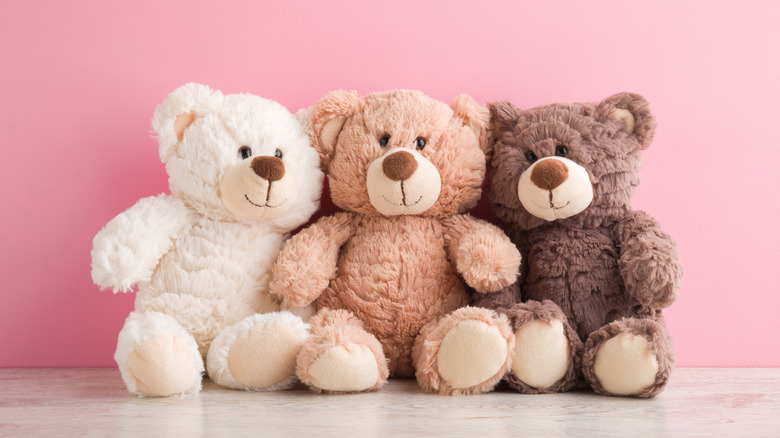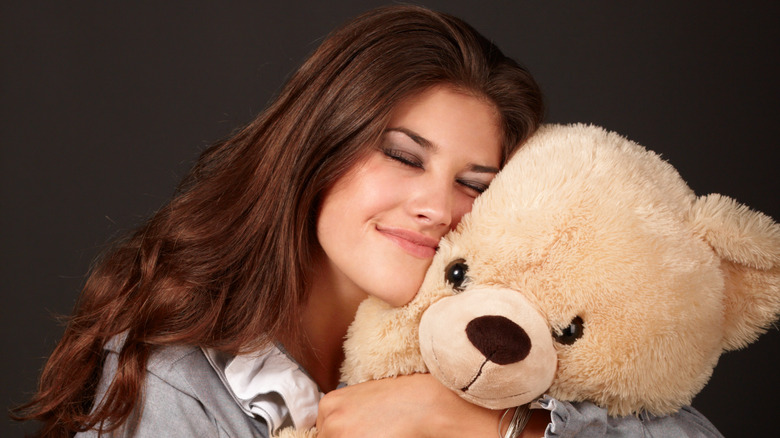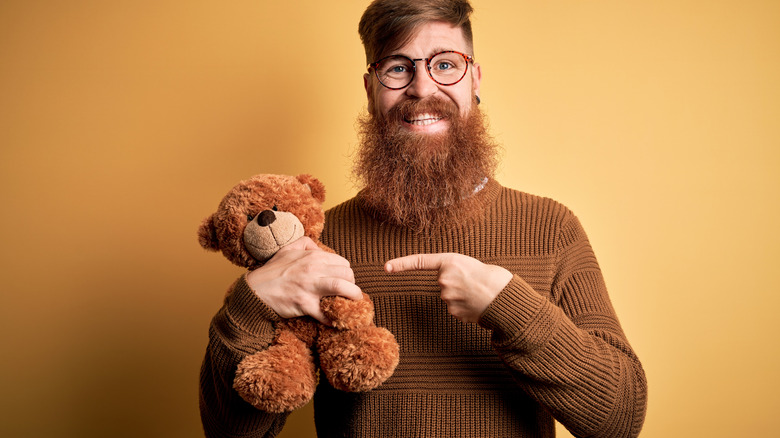Stuffed Animals Will Actually Change Your Behavior
It seems like adults are behaving worse than ever before, as journalist Matt Yglesias detailed in a scathing Substack essay pointing to everything from the rise in crime to public outbursts and even dangerous driving. As Yglesias argued, "Everyone has some margin along which they can get a bit more reckless, a bit more hostile, a bit more indifferent to the people around them. And as far as I can tell, a much larger swathe of the population is moving in that direction than the tiny number of people who are doing murders."
We saw it in the negative response to COVID-19 vaccines, with numerous Americans riled up by misinformation and taking to the streets and social media to express their disgust over being told what to do. Even more disturbingly, as The Guardian reported, findings from US/UK non-profit the Center for Countering Digital Hate discovered that it took just 12 people to spread conspiracy theories to a whopping 59 million followers. Put simply, a lot of adults are acting like children.
When we're young, our parents are supposed to teach us to behave properly and treat others with respect. But increasingly, and particularly with the advent of social media, it seems as though more and more grown-ups are making excuses for doing and saying whatever they please, regardless of the consequences. As crazy as it sounds, there's reason to believe that regressing to our younger selves — primarily by being around stuffed animals — could help us to be better adults.
Being around soft toys actually softens us too
According to a study by VU University Amsterdam, cited by the Daily Mail, cuddling up to stuffed animals, even as adults, generally helps us to feel better about, and more secure in, our lives. As the lead researcher and psychological scientist Sander Koole explained, "Even fleeting and seemingly trivial instances of interpersonal touch may help people to deal more effectively with existential concern." Koole continued, "This is important because we all have to deal with existential concerns and we all have times at which we struggle to find meaning in life."
Evidently, touch counts even if it's just a teddy bear, essentially softening participants through contact with literal soft toys. The effect is so impactful, in fact, that it could even help those battling with low self-esteem to gain a greater sense of hopefulness, regardless of how tough their circumstances might seem on the outside. As Koole summarized, "Interpersonal touch is such a powerful mechanism that even objects that simulate touch by another person may help to instill in people a sense of existential significance."
Likewise, as Bunnies By The Bay points out, hanging on to our childhood toys, which are often described as "comfort" or "transitional objects," makes us feel more secure in a changing world filled with obligations. Licensed therapist Margaret Van Ackeren noted, "In most instances, adults sleep with childhood stuffed animals because it brings them a sense of security and reduces negative feelings, such as loneliness and anxiety."
Stuffed animals make us behave more ethically
Aside from making us feel less anxious about our frequently stressful adult lives, stuffed animals can also help us work through challenges and, as research suggests, even make us better people overall. Analysts from the Edmond J. Safra Center for Ethics at Harvard University conducted experiments in which volunteers played various games involving making ethical decisions (via Harvard Business Review). Half of the volunteers were put into rooms containing children's toys or TVs playing cartoons, while the others played in plain spaces. Surprisingly, the researchers discovered that people were far less likely to lie or cheat in the game when they were in the presence of playthings.
The Harvard team also found that businesses were more likely to give generously to charities if they had at least five daycares or kindergartens in their neighborhood. The Harvard team theorizes that being near items or places that remind us of children, or childhood, may unconsciously prompt us to be kinder or more ethical. "Think about it: As a parent, you behave differently around kids. You don't swear as much," said researcher Sreedhari Desai.
Desai continued, "But we're finding that it's not only the presence of a child that makes us feel this way; it's the idea of a child." So, if being around a toy train or a CoComelon video can keep us honest in a game, having a stuffed unicorn on hand could also help us behave better overall — hey, it's worth a shot.


